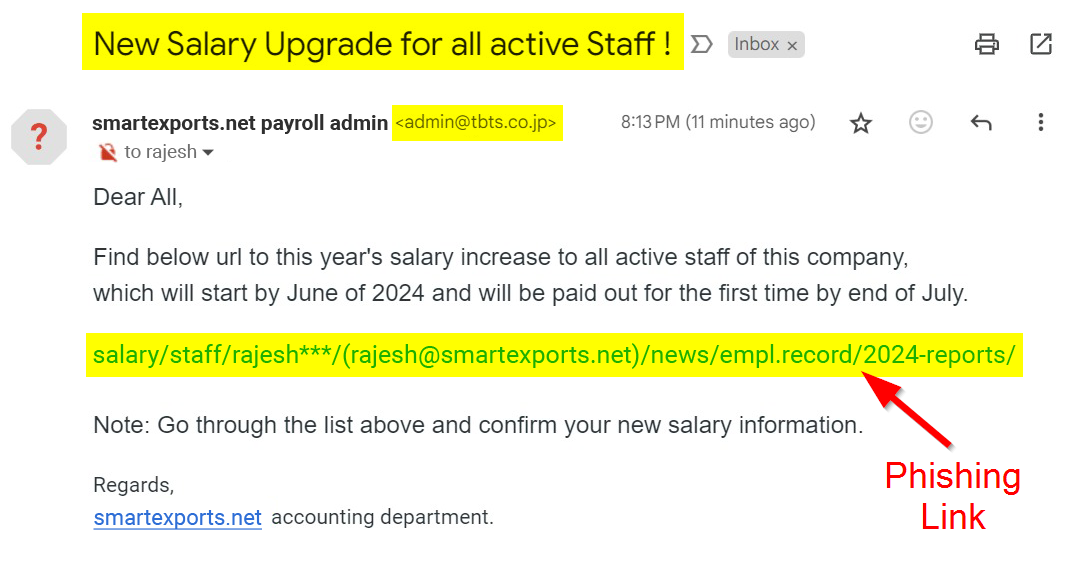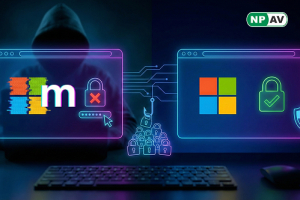Beware: Email Phishing Attacks Targeting Employees with Salary Increase Scams

As the digital landscape evolves, so do the tactics of cybercriminals. A particularly concerning trend is the rise of phishing attacks designed to exploit the anticipation of salary increases among employees. One recent example involves a cleverly crafted email that promises a salary hike starting in June 2024, with the first payout scheduled for the end of July. The email urges recipients to update their details via a provided link.
The Phishing Email Breakdown

At first glance, this message appears legitimate, creating a sense of urgency and excitement among employees eager to learn about their salary increase. However, this is a classic example of a phishing attempt designed to steal sensitive personal information.
Red Flags and Warning Signs
Unusual URLs: The link provided in the email does not lead to a secure company website but rather to a suspicious URL. Legitimate company communications will typically use recognizable and secure domains.
Urgent Call to Action: Phishing emails often create a sense of urgency, pressuring recipients to act quickly without considering the authenticity of the request.
Generic Greeting and Language: The email lacks personalization and uses generic language, which is a common trait of phishing attempts.
Poor Grammar and Formatting: Look out for grammatical errors and unusual formatting, which are often present in phishing emails.
Protecting Yourself from Phishing Attacks
Verify the Source: Before clicking on any link or providing personal information, verify the authenticity of the email. Contact your HR department directly using known contact details.
Check the URL: Hover over the link to see the actual URL destination. Avoid clicking on links that look suspicious or unfamiliar.
Enable Security Features: Use email security features like spam filters and phishing detection tools. Ensure your email provider offers robust security measures.
Educate Yourself and Others: Stay informed about the latest phishing tactics and educate your colleagues about how to recognize and respond to phishing attempts.
Report Phishing Attempts: If you receive a suspicious email, report it to your IT department or email provider. This helps prevent others from falling victim to the same scam.
Phishing attacks remain a prevalent threat in the digital age, targeting unsuspecting individuals with enticing but fraudulent promises. By staying vigilant and following best practices for email security, employees can protect themselves and their organizations from these malicious schemes. Remember, when in doubt, always verify the source before acting on any unsolicited email.






